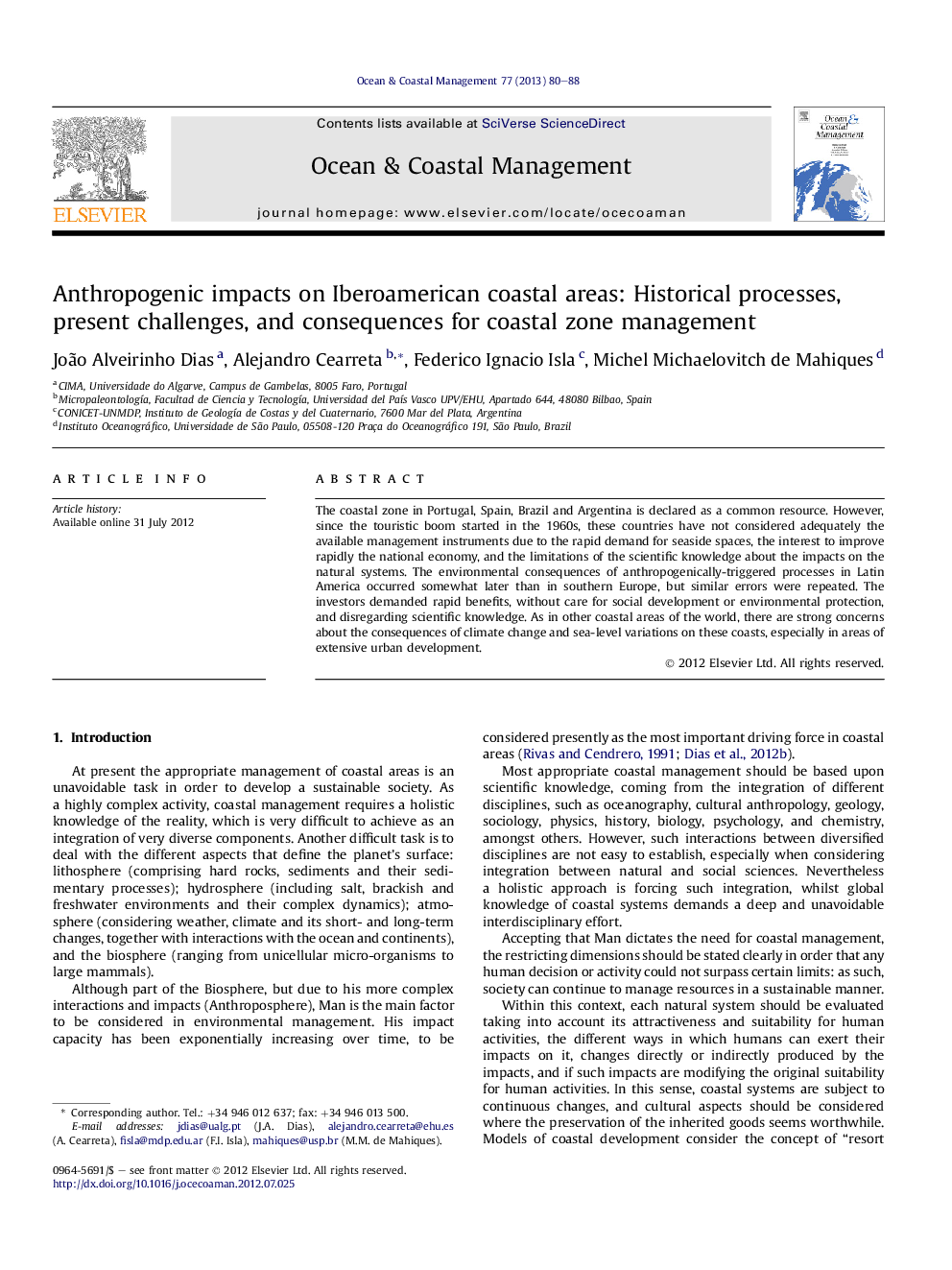| Article ID | Journal | Published Year | Pages | File Type |
|---|---|---|---|---|
| 1723972 | Ocean & Coastal Management | 2013 | 9 Pages |
The coastal zone in Portugal, Spain, Brazil and Argentina is declared as a common resource. However, since the touristic boom started in the 1960s, these countries have not considered adequately the available management instruments due to the rapid demand for seaside spaces, the interest to improve rapidly the national economy, and the limitations of the scientific knowledge about the impacts on the natural systems. The environmental consequences of anthropogenically-triggered processes in Latin America occurred somewhat later than in southern Europe, but similar errors were repeated. The investors demanded rapid benefits, without care for social development or environmental protection, and disregarding scientific knowledge. As in other coastal areas of the world, there are strong concerns about the consequences of climate change and sea-level variations on these coasts, especially in areas of extensive urban development.
► Based upon policies and laws created since the 19th Century, the coastal zone is considered as a common resource. ► Management instruments to orientate coastal development since the touristic boom of mid-20th Century were not considered. ► Social agents are now more concerned with the inter-generational sustainability of coastal areas. ► Greater recognition of the importance of scientific knowledge is fundamental for any intervention in the coastal zone.
